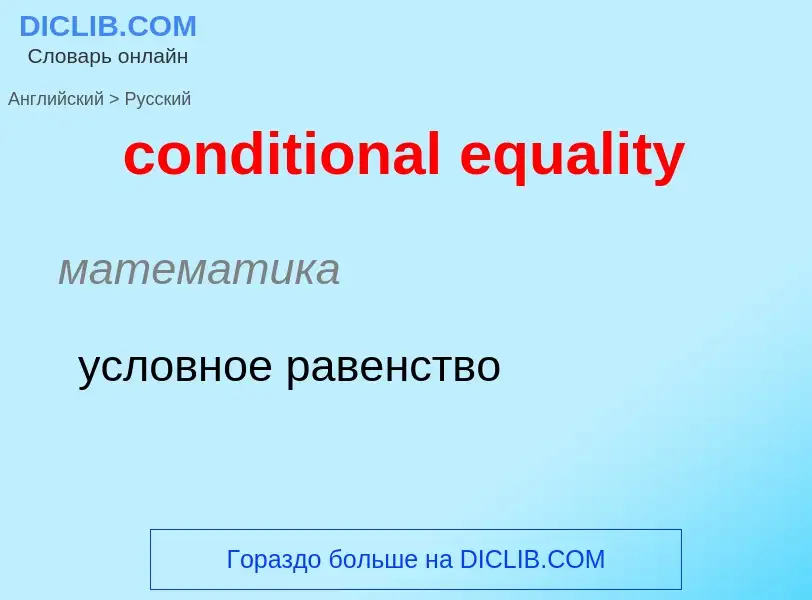Μετάφραση και ανάλυση λέξεων από την τεχνητή νοημοσύνη ChatGPT
Σε αυτήν τη σελίδα μπορείτε να λάβετε μια λεπτομερή ανάλυση μιας λέξης ή μιας φράσης, η οποία δημιουργήθηκε χρησιμοποιώντας το ChatGPT, την καλύτερη τεχνολογία τεχνητής νοημοσύνης μέχρι σήμερα:
- πώς χρησιμοποιείται η λέξη
- συχνότητα χρήσης
- χρησιμοποιείται πιο συχνά στον προφορικό ή γραπτό λόγο
- επιλογές μετάφρασης λέξεων
- παραδείγματα χρήσης (πολλές φράσεις με μετάφραση)
- ετυμολογία
conditional equality - translation to ρωσικά
математика
условное равенство
общая лексика
условное наклонение
Ορισμός
Βικιπαίδεια
The conditional mood (abbreviated cond) is a grammatical mood used in conditional sentences to express a proposition whose validity is dependent on some condition, possibly counterfactual.
It may refer to a distinct verb form that expresses the conditional set of circumstances proper in the dependent clause or protasis (e.g. in Turkish or Azerbaijani), or which expresses the hypothetical state of affairs or uncertain event contingent to it in the independent clause or apodosis, or both (e.g. in Hungarian or Finnish). Some languages distinguish more than one conditional mood; the East African language Hadza, for example, has a potential conditional expressing possibility, and a veridical conditional expressing certainty. Other languages do not have a conditional mood at all. In some informal contexts, such as language teaching, it may be called the "conditional tense".
Some languages have verb forms called "conditional" although their use is not exclusive to conditional expression. Examples are the English and French conditionals (an analytic construction in English, but inflected verb forms in French), which are morphologically futures-in-the-past, and of which each has thus been referred to as a "so-called conditional" (French: soi-disant conditionnel) in modern and contemporary linguistics (e.g. French je chanterais, from Late Latin cantāre habēbam, in si vous me le permettiez, je chanterais, "if you allowed me to do so, I would sing" [so-called conditional] vs. j'ai dit que je chanterais, "I said that I would sing" [future-in-the-past]). The English would construction may also be used for past habitual action ("When I was young I would happily walk three miles to school every day").
This article describes the formation of the conditional forms of verbs in certain languages. For fuller details of the construction of conditional sentences, see Conditional sentence (and for English specifically, English conditional sentences).

